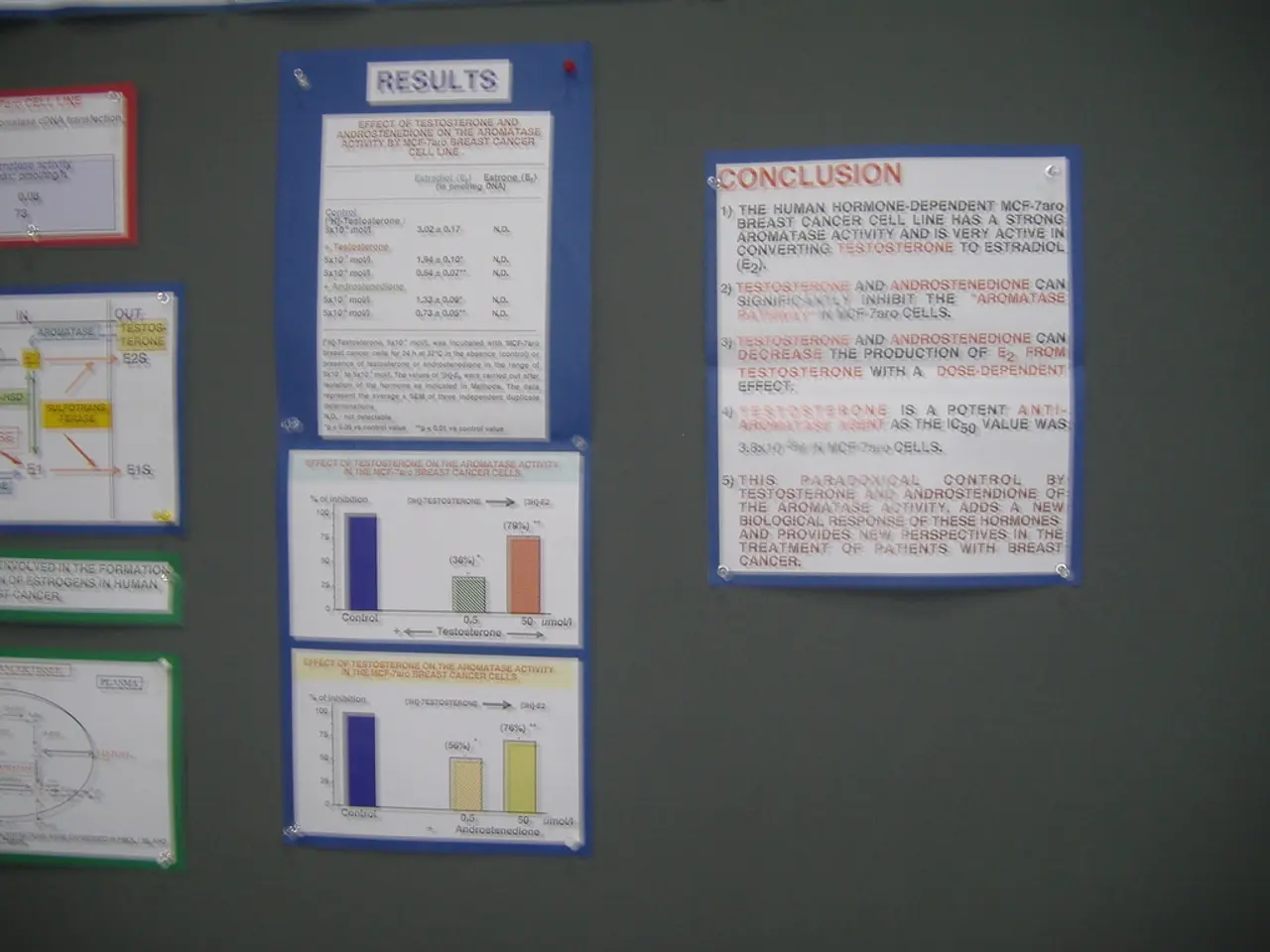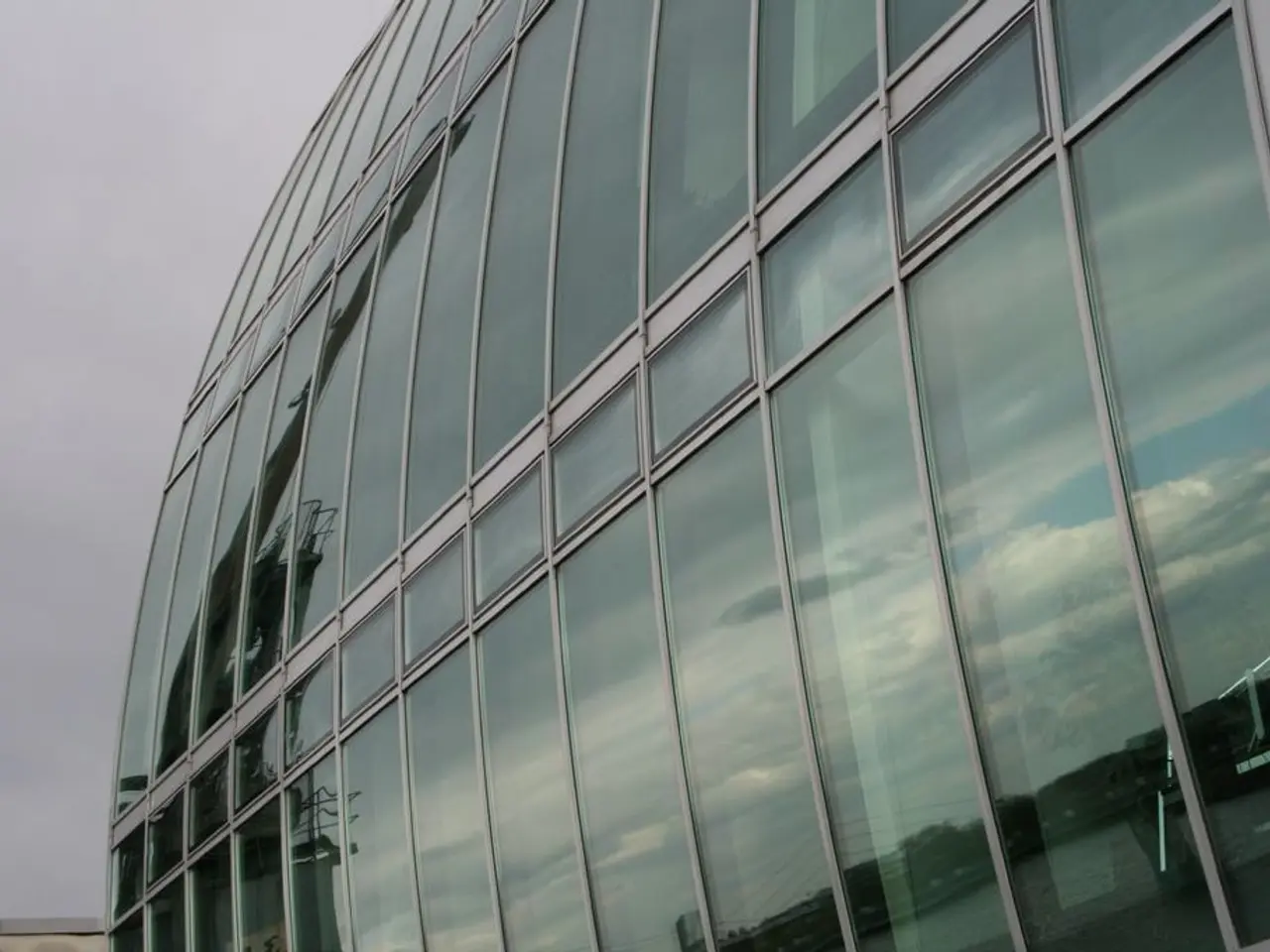Impacts of Trump's Tariffs on Asian Hardware Production for Apple, Nvidia, and Major Tech Companies
In a series of significant developments, the legal status of President Trump's unilateral global tariffs has been under scrutiny. The tariffs, which were first introduced as part of the 'America First Trade Policy' on Inauguration Day, have sparked legal challenges and international trade tensions.
On May 12, 2025, the U.S. and China agreed to a 90-day truce, which included significant tariff reductions. Under the deal, the U.S. cut duties on Chinese imports from 145 percent to 30 percent, while China lowered its tariffs on American goods from 125 percent to 10 percent. However, the legal status of these tariffs remains complex and is currently under appeal.
The U.S. Court of International Trade (CIT) issued a summary judgment in cases like *V.O.S. Selections, Inc. v. Trump* and *Oregon v. Department of Homeland Security*, ruling that President Trump had overreached his authority under the International Emergency Economic Powers Act (IEEPA) by imposing tariffs. The court found that the IEEPA does not grant the president unbounded tariff authority, as it must be used to address a declared national emergency, which Trump's tariffs did not.
Similarly, a district court in Washington D.C. issued a ruling in *Learning Resources v. Trump* that also challenged the legality of Trump's tariffs under IEEPA. The court issued a preliminary injunction, but it was limited to the named plaintiffs. Both decisions are currently on hold as the administration appeals. The Court of Appeals for the Federal Circuit issued an immediate administrative stay of the CIT's judgment, allowing the tariffs to remain in effect pending the appeal.
The rulings highlight concerns about executive overreach and the potential misapplication of IEEPA, which is intended for emergency economic situations. The nondelegation doctrine is central to these challenges, arguing that Congress, not the executive branch, should have the authority to impose tariffs.
The ongoing legal battle and the suspension of WTO contributions by the U.S. have significant economic and political implications, affecting trade relationships and the rule of law in international trade. Businesses are scrambling to adjust, shifting their supply chains, rewriting contracts, and bracing customers for higher costs.
In the tech sector, companies like Apple, Microsoft, and Nvidia, as well as Sony, Nintendo, and Microsoft, have been particularly affected by the tariffs. The Nintendo Switch 2, set to launch on June 5, carries a $449.99 price tag, with Mario Kart World bundled in, that jumps to $499.99; the game would go for roughly $80, an unusually high price. These prices do not include any looming tariff-driven inflation.
The U.S. amended its tariff policy on February 5, 20XX, exempting certain low-value Chinese imports. The legal battle surrounding the tariffs is far from over, with oral arguments scheduled for July 31, 2025, which will further clarify the legal standing of these tariffs. The upcoming oral arguments will be crucial in determining whether President Trump's use of IEEPA to impose tariffs is constitutional and legally valid.
[1] https://www.courthousenews.com/us-court-rules-trump-exceeded-authority-on-tariffs/ [2] https://www.bloomberg.com/news/articles/2025-05-13/trump-tariffs-on-china-face-new-legal-challenges-in-dc-court [3] https://www.reuters.com/article/us-usa-china-trade-tariffs-idUSKCN1SQ26Q
- Despite the ongoing tension in international trade due to President Trump's tariffs, the tech sector, including companies like Apple, Microsoft, Nvidia, Sony, Nintendo, and Microsoft, have been significantly impacted by these tariffs, with the Nintendo Switch 2 carrying a potentially inflated price of $499.99 due to tariffs, a price hike of $50 and $80 for the game alone.
- The legal battle surrounding President Trump's tariffs is far from over, with crucial oral arguments scheduled for July 31, 2025, which will further clarify the legal standing of these tariffs. The ongoing argument will determine whether President Trump's use of the International Emergency Economic Powers Act (IEEPA) to impose tariffs is constitutionally and legally valid.




